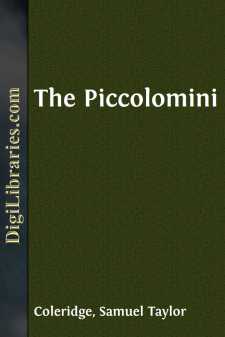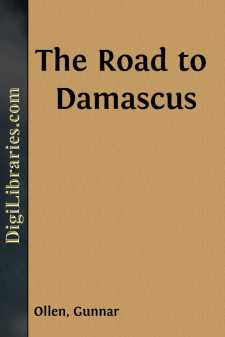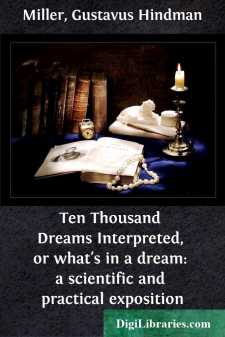Categories
- Antiques & Collectibles 13
- Architecture 36
- Art 48
- Bibles 22
- Biography & Autobiography 813
- Body, Mind & Spirit 142
- Business & Economics 28
- Children's Books 13
- Children's Fiction 10
- Computers 4
- Cooking 94
- Crafts & Hobbies 4
- Drama 346
- Education 46
- Family & Relationships 57
- Fiction 11828
- Games 19
- Gardening 17
- Health & Fitness 34
- History 1377
- House & Home 1
- Humor 147
- Juvenile Fiction 1873
- Juvenile Nonfiction 202
- Language Arts & Disciplines 88
- Law 16
- Literary Collections 686
- Literary Criticism 179
- Mathematics 13
- Medical 41
- Music 40
- Nature 179
- Non-Classifiable 1768
- Performing Arts 7
- Periodicals 1453
- Philosophy 64
- Photography 2
- Poetry 896
- Political Science 203
- Psychology 42
- Reference 154
- Religion 513
- Science 126
- Self-Help 84
- Social Science 81
- Sports & Recreation 34
- Study Aids 3
- Technology & Engineering 59
- Transportation 23
- Travel 463
- True Crime 29
Sort by:
PREFACE. The two dramas,—PICCOLOMINI, or the first part of WALLENSTEIN, and the DEATH OF WALLENSTEIN, are introduced in the original manuscript by a prelude in one act, entitled WALLENSTEIN'S CAMP. This is written in rhyme, and in nine-syllable verse, in the same lilting metre (if that expression may be permitted), with the second Eclogue of Spenser's Shepherd's Calendar. This prelude...
more...
ACT ONE SCENE: A Room in the Church Tower. Window shutters at back wide open, starlit sky is seen through windows. Background: Snow covered house-roofs; gable windows in the distance brilliantly illuminated. In room an old chair, a fire-pan and a picture of the Virgin, with a lighted candle before it. Room is divided by posts—two in centre thick enough to conceal an adult. Chant, in unison, from the...
more...
by:
Edwin Bjorkman
ACT I (A Cloister opening upon a Convent Close planted with groups of trees. The convent church forms the right side of the quadrangle. A brick wall runs along the rear. Fruit trees in blossom appear above the wall. Olof is seated on a stone bench. Before him stand two scholars, who are reading their respective parts out of "The Comedy of Tobit.") First Scholar. Now have our enemies trapped us...
more...
by:
John Ruskin
i. It may perhaps be thought, that in prefacing a manual of drawing, I ought to expatiate on the reasons why drawing should be learned; but those reasons appear to me so many and so weighty, that I cannot quickly state or enforce them. With the reader's permission, as this volume is too large already, I will waive all discussion respecting the importance of the subject, and touch only on those...
more...
SCENE I. MILLER—MRS. MILLER. MILLER (walking quickly up and down the room). Once for all! The affair is becoming serious. My daughter and the baron will soon be the town-talk—my house lose its character—the president will get wind of it, and—the short and long of the matter is, I'll show the younker the door. MRS MILLER. You did not entice him to your house—did not thrust your daughter...
more...
by:
Gunnar Ollen
INTRODUCTION Strindberg's great trilogy The Road to Damascus presents many mysteries to the uninitiated. Its peculiar changes of mood, its gallery of half unreal characters, its bizarre episodes combine to make it a bewilderingly rich but rather 'difficult' work. It cannot be recommended to the lover of light drama or the seeker of momentary distraction. The Road to Damascus does not...
more...
Broom. To dream of brooms, denotes thrift and rapid improvement in your fortune, if the brooms are new. If they are seen in use, you will lose in speculation. For a woman to lose a broom, foretells that she will prove a disagreeable and slovenly wife and housekeeper. Broth. Broth denotes the sincerity of friends. They will uphold you in all instances. If you need pecuniary aid it will be forthcoming....
more...
by:
Henri Bergson
Before the dawn of history mankind was engaged in the study of dreaming. The wise man among the ancients was preëminently the interpreter of dreams. The ability to interpret successfully or plausibly was the quickest road to royal favor, as Joseph and Daniel found it to be; failure to give satisfaction in this respect led to banishment from court or death. When a scholar laboriously translates a...
more...
by:
Sidney Lee
PREFACE This work is based on the article on Shakespeare which I contributed last year to the fifty-first volume of the ‘Dictionary of National Biography.’ But the changes and additions which the article has undergone during my revision of it for separate publication are so numerous as to give the book a title to be regarded as an independent venture. In its general aims, however, the present...
more...
PEOPLE IN THE PLAY ALICE GARDNER: Daughter of James K. Gardner, President of the L.I. & W. Railroad "UNCLE" JOSEPH HATCH: Alias "Gentleman Joe" "BRICK" MEAKIN: Alias "Reddy, the Kid" HARRY HAYES: Alias "Grand Stand" Harry CAPTAIN LUCAS: Chief of Police Policemen, Brakemen, Engineers Scene—The dining room in the country house of James K. Gardner on Long...
more...











